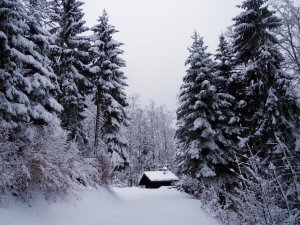 It seems like every year I start having trouble sleeping at night right around the daylight savings time change.
It seems like every year I start having trouble sleeping at night right around the daylight savings time change.
I recently read an article that talks about how the Earth’s axis affects our sleep habits. As the days shorten with the arrival of winter, a gap is created between our internal body clocks and our sleep patterns in comparison to the natural day. Daylight savings time was actually created to help deal with these changes in daylight hours.
Before electricity and the daily grind of getting up at the same time every day to go to work, people woke up with the rising sun and went to bed when it was dark. During the long winter nights, sleep was actually biphasic. That means we slept for a few hours, then woke up for a few hours, and then slept again for a few hours.
Artificial light modified our sleep habits and made them more routine. The good news is that a regular sleep routine and getting plenty of rest are good for our bodies. On the other hand, artificial light means we can stay up long after it’s dark outside and get up before the sun rises. We are more likely to create a pattern of sleep deprivation.
From a previous blog, we know it’s important to get plenty of sleep. Here are 6 ways your sleep can be affected during the winter:
Lack of sunlight
We need sunshine to help us be alert and energetic. A lack of sunlight can make us sleepy and sluggish. During the winter months, many of us get up in the dark and drive to work before it’s barely daylight. By the time we leave work, it’s once again dark. We need the light to tell our bodies it’s time to be awake. On the other hand, we need darkness and nighttime so that our body knows it’s time to go to bed. Spend a few minutes outside each day. Even on dreary days, it’s still good to experience fresh air and natural light.
Lack of exercise
Because you feel tired and unmotivated during the winter months, you may skip your exercise routine. In addition, cold weather can keep you from getting outside and doing chores or activities that would normally tire you out. Try to take a brisk walk or even use the stairs to increase your movement during the day.
Fluctuating sleep patterns
Winter time and cold weather makes it even more appealing to snuggle under the covers and sleep in on the weekends. Just as too little sleep affects you mentally and physically, too much sleep on the weekends can throw off your sleep patterns during the week. It’s best to only vary your bedtime and wake up time by about an hour or so, even on weekends.
Bad eating habits
I know I tend to hibernate in the winter. I want to eat warm, filling comfort foods that aren’t the best choices. But when you eat a heavy meal in the evening, your body has to work harder to digest it. Your full belly can actually keep you awake at night or disrupt your sleep pattern. Keep up your healthy eating habits even in the winter, especially if you aren’t burning as many calories.
Your house temperature
Turning the heat up may make you more comfortable on a cold evening, but it will make it harder for you to sleep. We tend to sleep better in a cooler room because it will keep our body temperature down. However, a room that’s too cold can make it difficult to sleep as well. You need to find the temperature that’s just right to help you fall asleep and stay asleep.
Sickness
Winter often brings on more colds and flu. We need sleep to help heal our body. Yet, when we get sick, it often interferes with our sleep because we may have a sore throat, stuffed up nose, or run a fever. It can be harder to get a good night’s sleep with cold and flu symptoms.
If you notice you are feeling tired, sluggish and grouchy this winter, take a look at your sleep habits. You may need to make some adjustments to your routine and your sleep environment so that you can get a better night’s sleep.
Do you have tips for creating a healthy sleep routine, even in the winter? We would love to hear from you!
